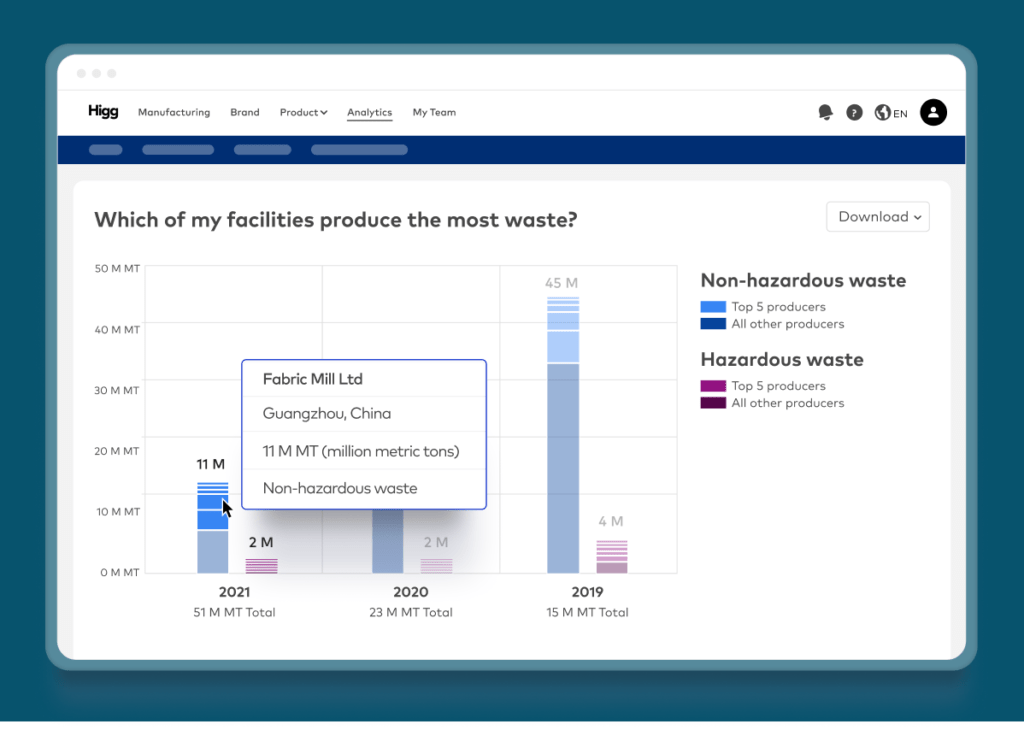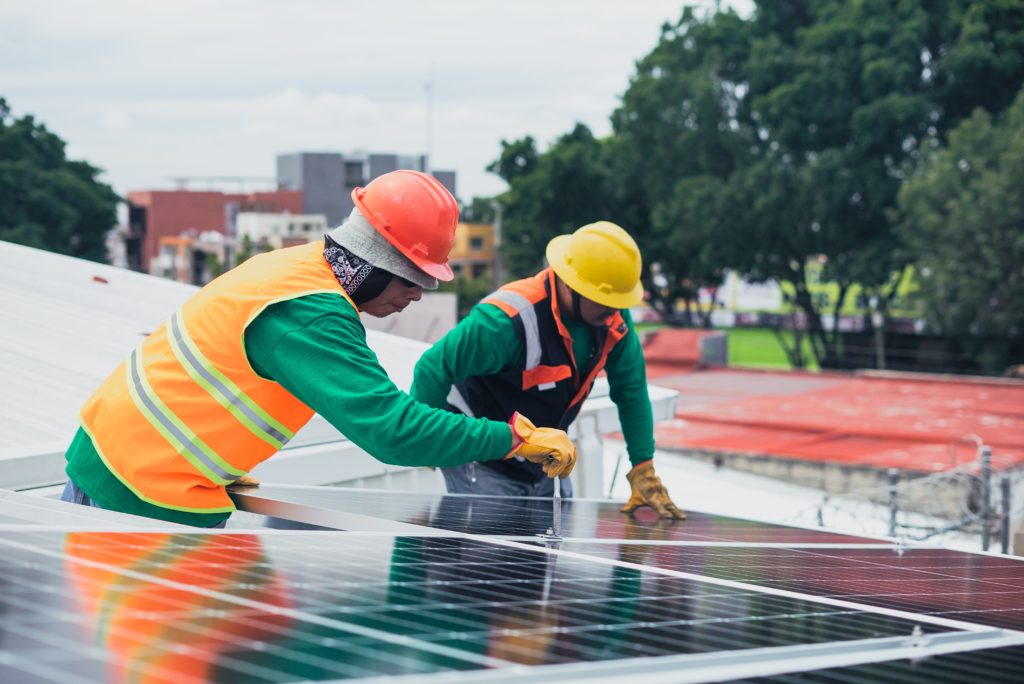
Blog
Note: This article predates our launch as Worldly.
Given that we’re already at the halfway point of the year (hard to believe!), we wanted to take a minute to look at what’s been accomplished so far with Higg’s 2022 product updates — and what’s still to come.
Our facility environmental assessment tools remain the most widely-adopted of our measurement suite. These tools allow brands to collect primary data from their manufacturing partners, so that they can analyze their business’s footprint as their suppliers, product line, and sourcing decisions change over time.
In recent years, we’ve seen close to 20% growth in year-over-year usage of these facility evaluation tools. So far in 2022, nearly 15% more environmental assessments have been posted by manufacturers compared to this point last year.
Similarly, looking at the full 2021 reporting cycle, we also see a total increase in assessments compared to the prior year. With these increases in facilities measured, brands are closing gaps in better understanding their entire footprint.
But we know that measurement on its own isn’t enough. That’s why we continue to add new functionality to Higg’s analytics – so that brands can more easily identify trends, uncover areas of concern, and spot opportunities for collaborative improvements with their business partners.

Our improved data visualizations include expanded categories with three new charts:
For instance, for a large grocery retailer, these visualizations will help support conversations with leadership about overall supplier performance, and help understand which suppliers are meeting their requirements. Similarly, the new charts on waste will allow a brand to not only see where their waste comes from, but also determine whether or not they should prioritize hazardous waste reduction programs.
We’re also proud to be supporting the Carbon Leadership Program: a hands-on carbon management program for manufacturing facilities. Working with the Apparel Impact Institute, businesses are using Higg to collect monthly facility data on their emissions. This data is then used to identify specific opportunities for on-site improvements and to track progress towards carbon reduction goals.

In addition to enabling measurement for more individual businesses, we want to also provide context. As the leading tool within apparel, footwear, and textiles, Higg is uniquely positioned to offer insight into overall trends for the industry. Through baselines and aggregated, anonymized industry-wide reporting, we believe individual businesses can see how their efforts compare against others – which will encourage businesses to keep up, and even spotlight opportunities to get ahead.
Earlier this year, we released social performance benchmarking. Working with the Social & Labor Convergence Program, we established baselines across metrics such as wages, health and safety, and termination policies. There is no score or value judgment associated with the data, instead providing comparative context across different categories to help brands and their suppliers formulate action plans for improvement in areas that deserve attention.
As the first sustainability software solution to combine environmental metrics like carbon emissions, water use and waste management with working conditions, we’re helping users unlock a truly end-to-end view of their impact.
Relatedly, Higg recently began a partnership with the Global Fashion Agenda, as its strategic data partner. For GFA’s 2022 industry-wide report, Higg provided anonymized and aggregated data on the efforts of brands to measure and improve their sustainability impacts. Paired with insights from industry leaders and stakeholders, our reporting is helping to track progress, identify areas for improvement, and accelerate progress towards a net positive fashion industry.
Similar to our on-platform benchmarking capabilities, we believe such reporting will help individual businesses know where they stand in relation to their peers, and encourage them to keep pace with the progress we’re seeing.
Today, consumer goods businesses face greater expectations than ever when it comes to sustainability – from the granularity of their data, to the breadth of their reporting, to the transparency of everything they’re doing.
That’s why we’re investing in helping connect our sustainability data to other business systems. Last year we launched our first API offering, which enables Higg users to connect our software to their product lifecycle management solutions. With this API, users can send and receive data between Higg and their PLM, so that factors like emissions, water use, and energy use can be tracked alongside other product attributes.
Building on this effort, we recently launched a similar API for assessment data, allowing information from the Higg facility and brand tools to be integrated into internal platforms to better monitor supply chain performance. By automating aspects of the supplier management processes, brands and retailers can halt purchasing orders based on critical social and labor criteria, as well as identify other opportunities to make improvements with their supply chain partners.
For example, the new assessment data API helps businesses flag any data deemed as potentially concerning. For example, if any manufacturing facility indicated they were operating without permits, the updated API could automatically retrieve and alert your business to these flags.
While consumer goods businesses have made progress over the last decades in terms of measuring and improving impact, we’re going to see increased pressure to do more, and do it quickly. We’re working to expand our partnerships, to bring more types of data to our users. Working with the Sustainable Apparel Coalition, we also continue to iterate and evolve the methodologies within the Higg Index.
As a technology platform, our goal is to help your organization make informed decisions about your impact – and we’re working hard to offer more reputable peer-reviewed datasets, and to provide best-in-class tools for gathering new primary data from your supply chain partners.
© 2024 Worldly. All Rights Reserved